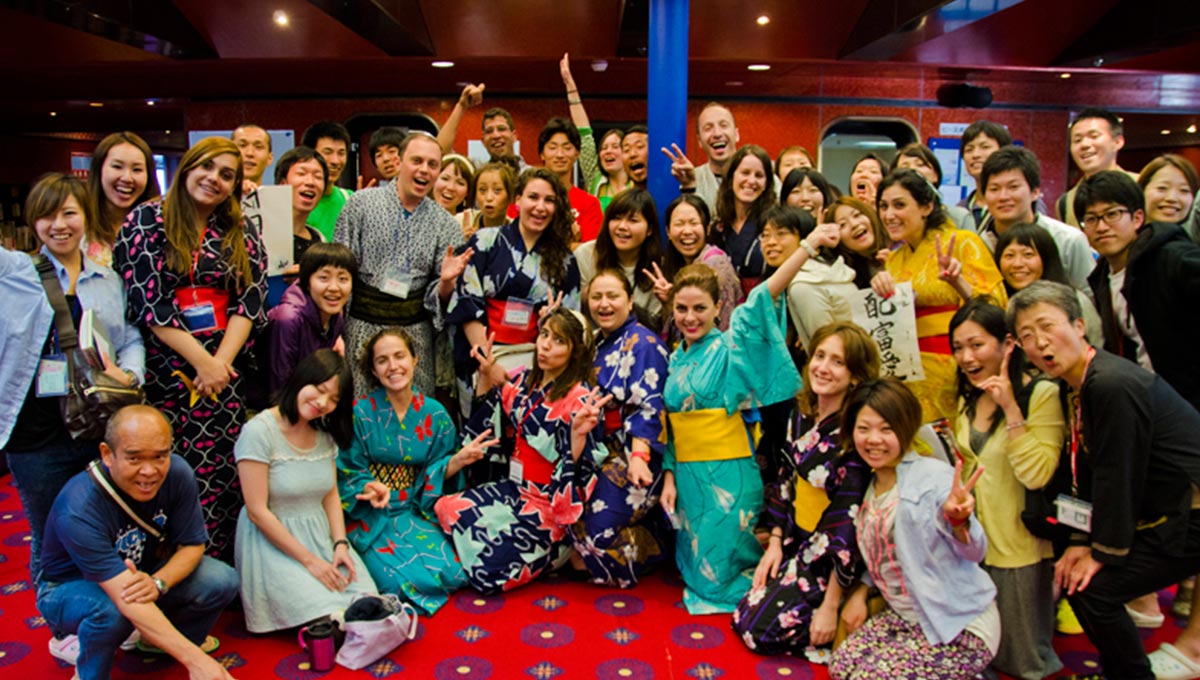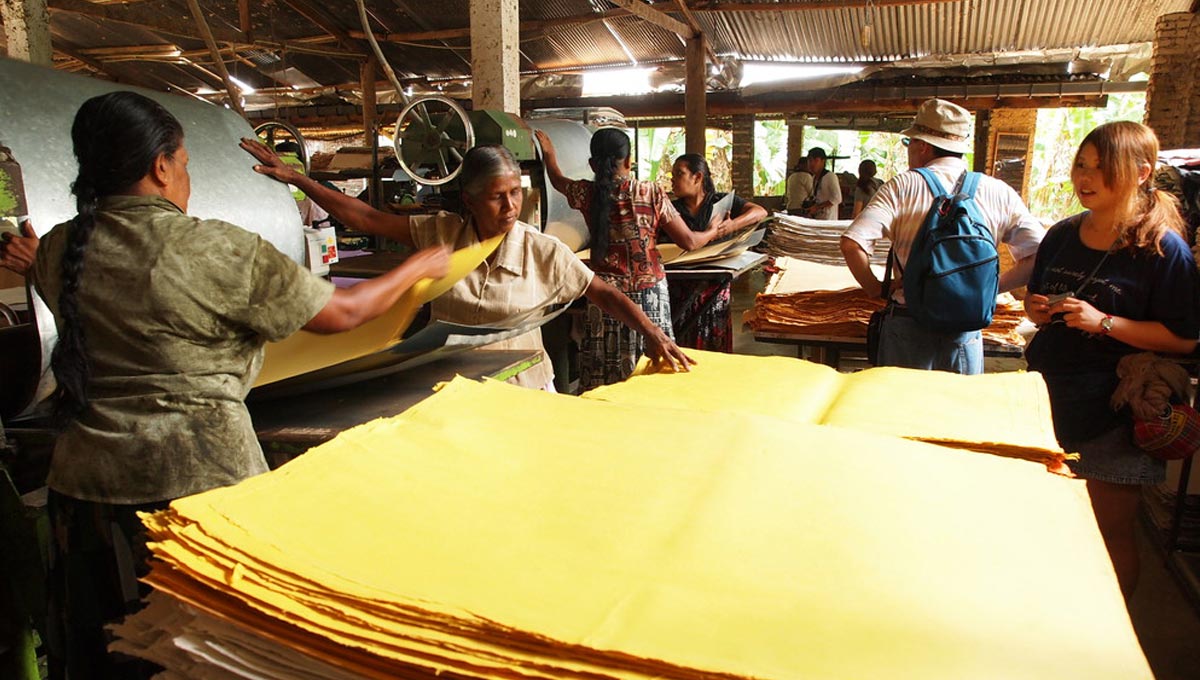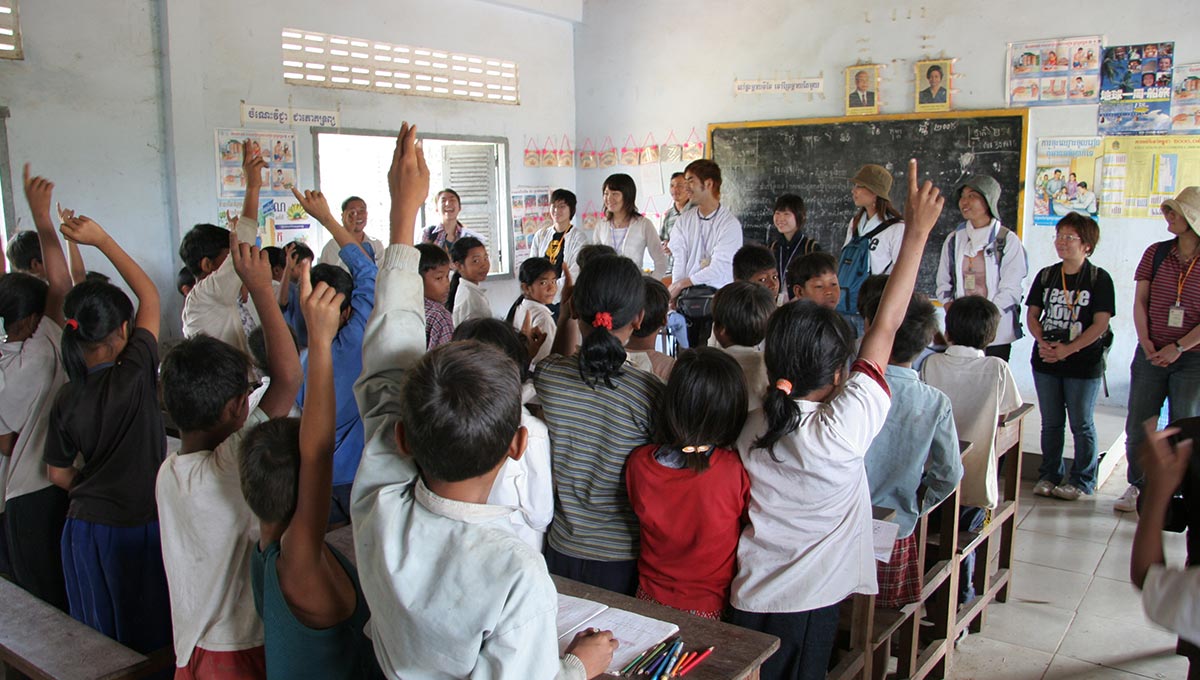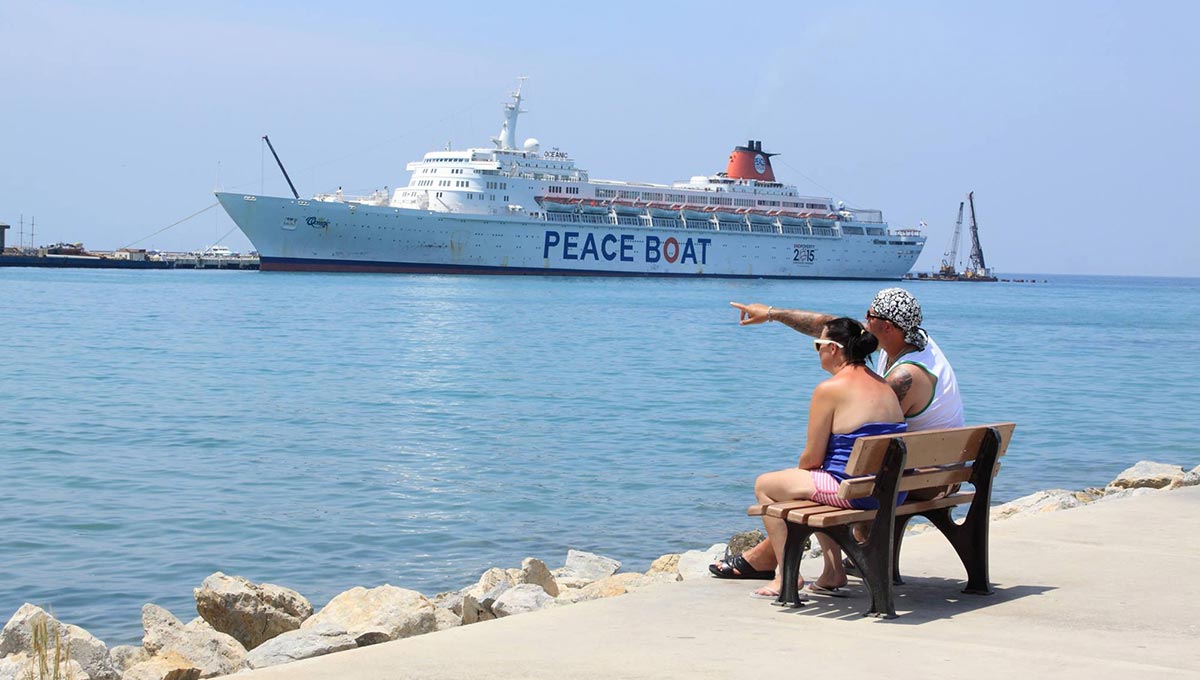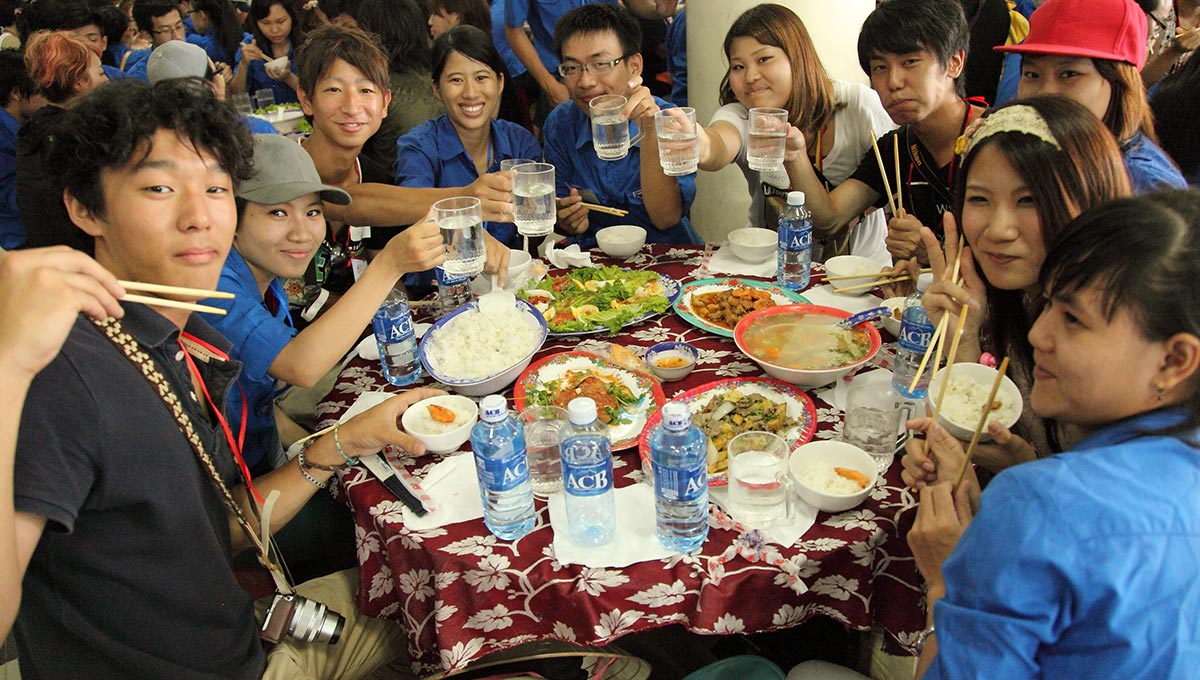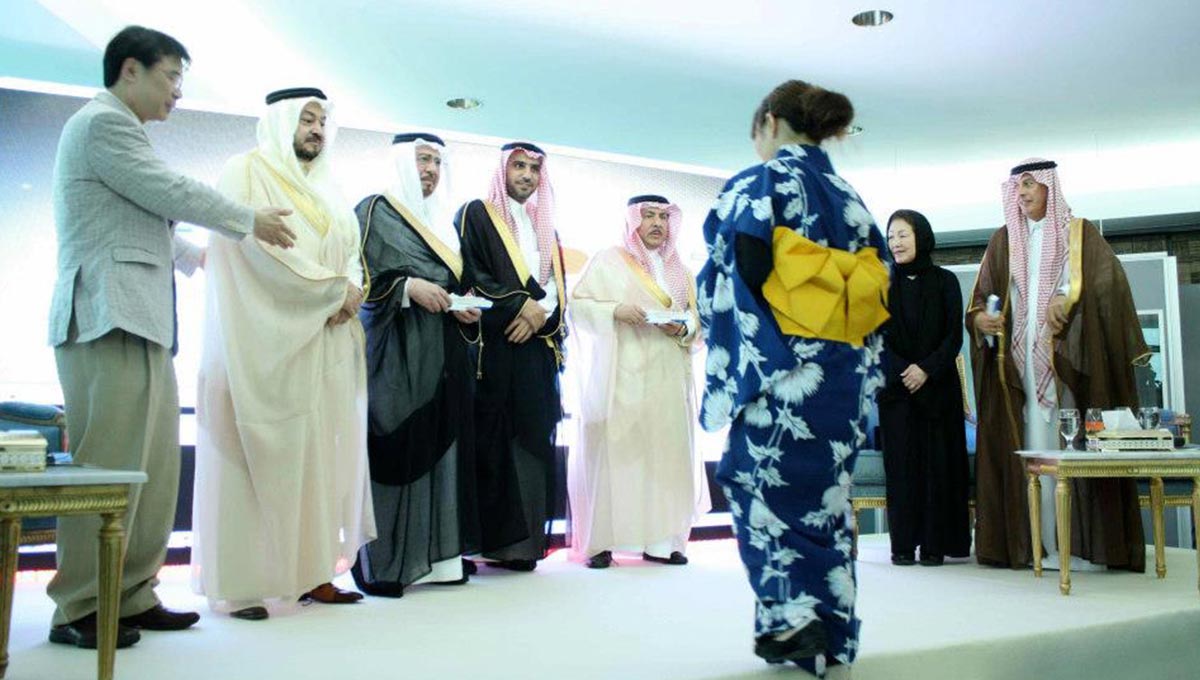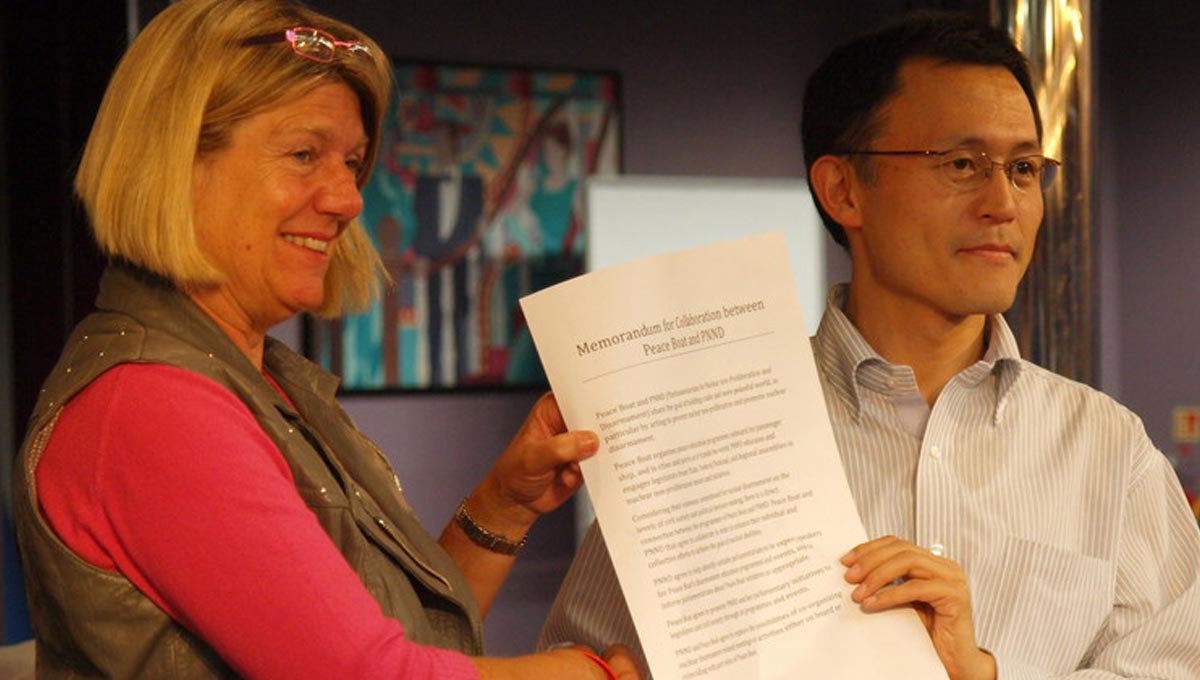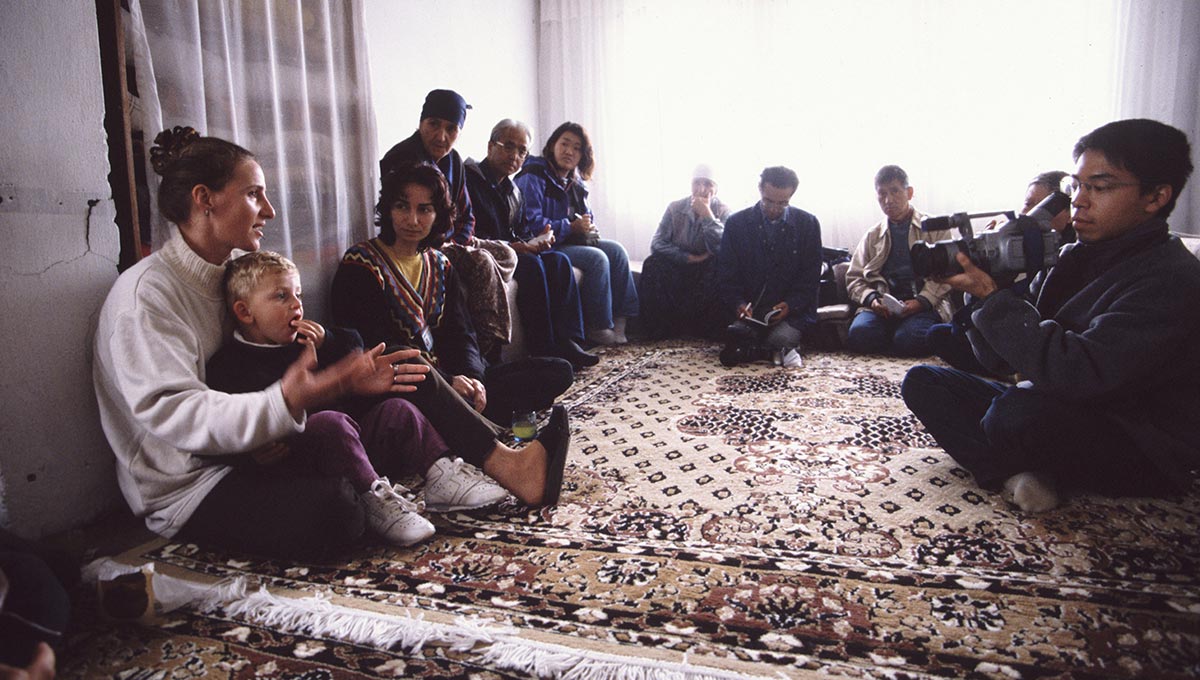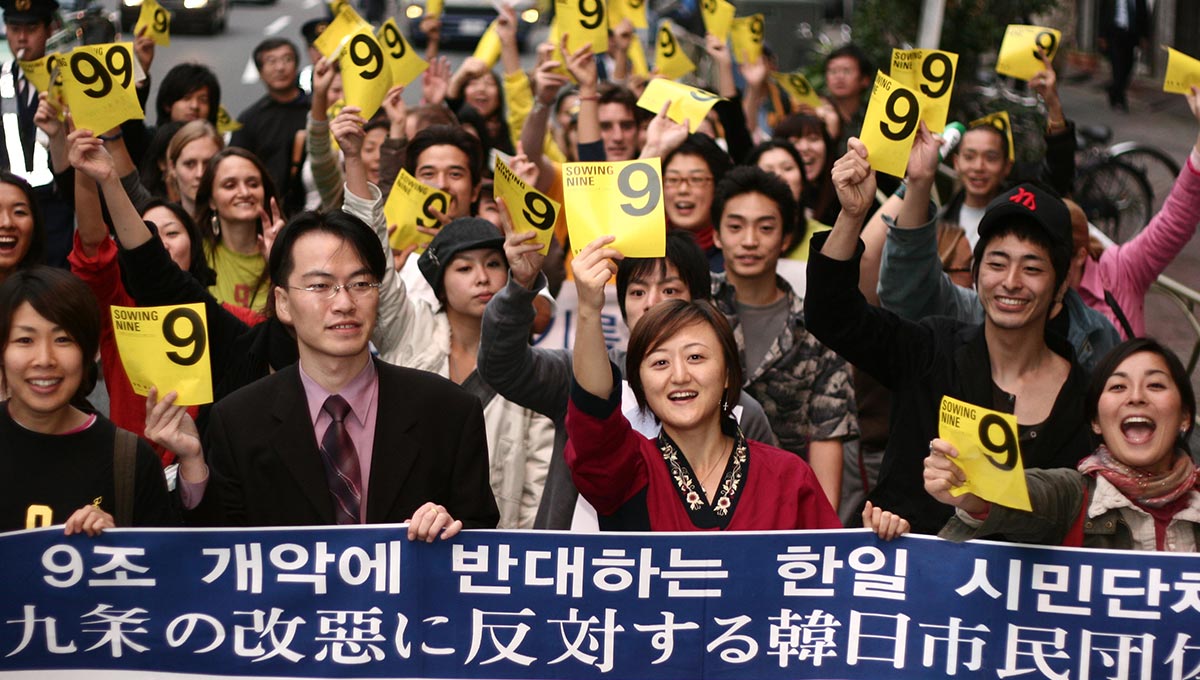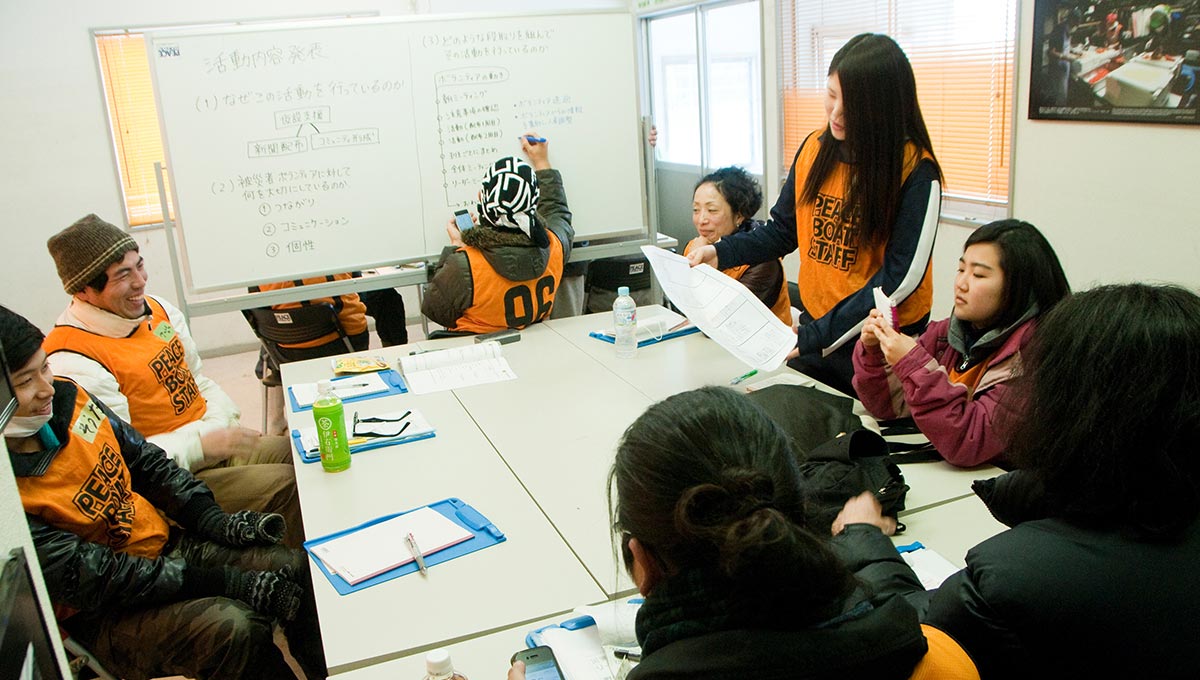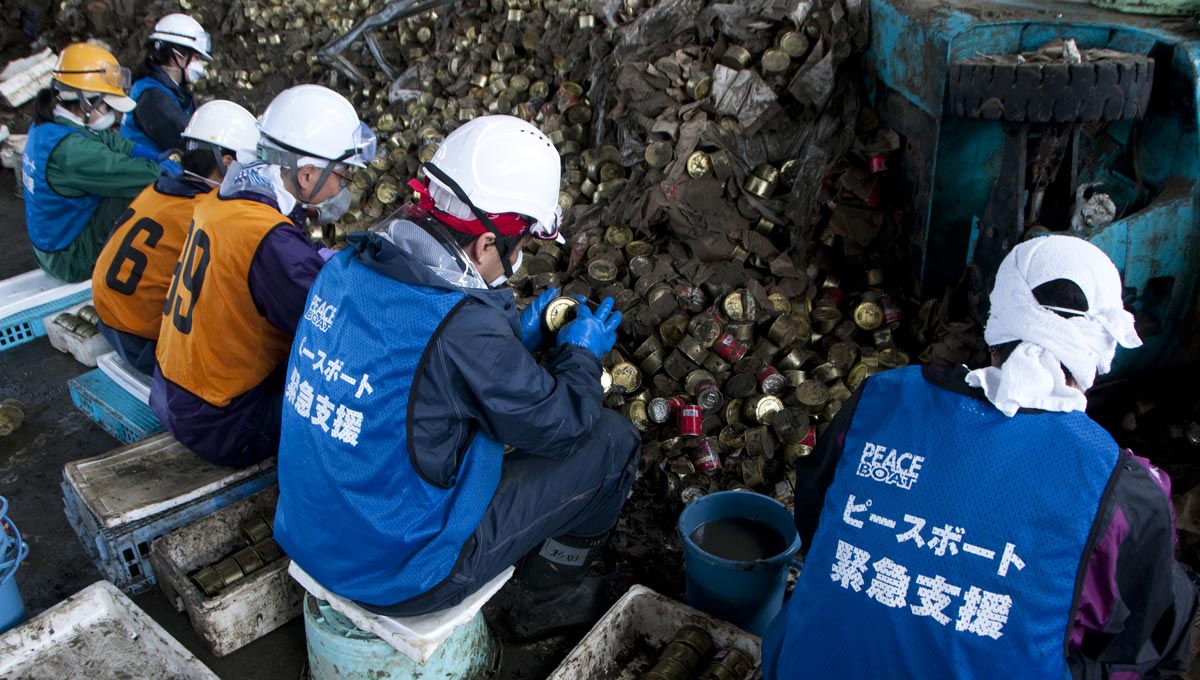Areas of Work
Peace Boat organises diverse programmes and campaigns around the world in cooperation with a wide range of institutions, including NGOs, civil society groups, student groups and volunteer organisations. These programmes focus on issues of great relevance to the region in question and benefit from the knowledge and on-the-ground expertise of local partners.
Most programmes are carried out across 4 arenas of action; onboard, in ports, at the international level and in Japan.
Onboard Platform
Community
Each Peace Boat voyage is a fascinating mix of people from different cultures, ages, professions and countries. The wide range of experiences, outlooks and viewpoints on building a culture of peace and sustainability combine to create an eclectic onboard environment that mirrors the diversity of the world and its peoples.
Experiential Learning
Learning onboard a Peace Boat voyage is based on a creative, diverse approach to Peace Education based on dialogue, sharing and cooperation. Lectures, workshops and discussions organised by staff members and guest educators are supplemented by a wide variety of events planned and run by participants who actively share their interests, talents and life experiences.
An Effective Medium for Peace Education
The onboard environment serves as a safe space for participants to try to find solutions to problems that they might have witnessed in port or experienced onboard. As such, the ship serves as the perfect medium for experiential peace education.
In-Port Platform
Opportunities for Learning and Cultural Exchange for Participants
While having fun and sightseeing remain important aspects of the Peace Boat cruise model, they are complemented by a range of educational activities organised in each and every port of call. These activities are described below.
Study Programmes: Understanding Local Realities
Study programmes are organised to shed light on particular problems and share innovative local solutions. This local level learning is then integrated into thinking on a global scale.
Exchange programs: Building Friendships at the Grassroots
Exchange programmes bring Peace Boat participants and local people together to share common activities and move beyond the barriers of language and cultural difference
Home-stays and language exposure
Peace Boat organises in-port home-stay experiences with local families. In some ports of call, exchange programs are also organised with local students of the Japanese language to offer them the chance to interact with Japanese Peace Boat participants.
The Ship as a Message of Peace and Sustainability to Local Communities
Due to carefully nurtured relationships with local media outlets, the ship’s arrival and in-port activities often receive significant coverage in local newspapers and television. The ship itself serves as a highly visible message of peace, friendship, sustainable tourism and international solidarity. Peace Boat takes advantage of its high visibility to promote certain causes.
Peace Boat’s Visits as Opportunities for International Solidarity and Joint Appeals
Peace Boat aims to contribute to the advocacy work of our local partners through the organisation of joint appeals in port, in the form of demonstrations, conferences, workshops, festivals or press conferences, aimed at raising local, national and international awareness.
The Impact of Peace Boat’s Visit on the Local Society and Economy
Peace Boat often organises activities with local communities to which the average tourist might not have access. This serves as an act of solidarity with these communities and also offers them, where feasible, an opportunity to sell their products to the onboard participants.
At the International Level
International Networks
Peace Boat is a member of the following international networks:
- Friends of the Earth International (Affiliate Member)
- International Peace Bureau
- Global Partnership for the Prevention of Armed Conflict (Northeast Asia Secretariat)
- World Social Forum
- Peace Now Korea Japan (Founding Member)
- Non-Violent Peace Force
- World Peace Now
- International Campaign to Abolish Nuclear Weapons (ICAN)
- Abolition 2000
- Japan Campaign to Ban Landmines
Campaigns and Advocacy
Peace Boat also engages with international civil society by leading or participating in numerous international campaigns and advocacy efforts to help build a more peaceful and sustainable world.
Conflict Prevention and Peacebuilding – Peace Boat regularly visits past or present conflict areas such as former Yugoslavia, Eritrea, Colombia, Timor Leste and places in Asia which suffered Japanese aggression during World War II. Understanding the causes of these conflicts can lend some insight to how they might be/have been solved and how their recurrence might be prevented.
Disarmament and Nuclear Abolition – Peace Boat advocates for a decrease in global military expenditure and the reallocation of funds to eradicate poverty and invest in sustainable development and human security.
Humanitarian Support and Disaster Relief – Peace Boat helps to prepare and strengthen civil response in times of disaster and fortify national and global disaster relief networks and capacity in of all phases of the disaster cycle; disaster prevention, mitigation, preparedness, response and recovery.
Peace and Human Rights – Peace Boat combines grassroots mobilisation with high-level advocacy and international networking to promote peace, non-violence and the respect of human rights in cooperation with a network of NGOs and governments committed to similar causes.
Sustainability – Uneven wealth distribution lies at the heart of many social problems and economic turmoil. Environmental degradation is often the unintended outcome of our search for greater wealth. Peace Boat organises numerous activities to equip participants with greater awareness of the impact of globalisation and with tools for sustainable living.
A network of International thought-leaders and volunteers
Over the past 30 years, Peace Boat has built a strong network which includes renown academics, thinkers, activists, scientists, public figures, political leaders and Nobel Peace Laureates.
Japan-focused Activities
Peace and Sustainability Education in Japan
Peace Boat continues to advocate for peace education in Japan, chiefly through efforts to protect Article 9 of the Japanese Constitution, which renounces war as a means of settling international disputes and prohibits the maintenance of armed forces and other war potential.
The Abolishment of Foreign Military Bases in Japan
Peace Boat is a key supporter of US for Okinawa, a peace action network based in Tokyo formed by citizens from US, Japan and elsewhere living in Japan who are concerned about the presence of US bases in Okinawa.
Reconciliation and Understanding in Northeast Asia
Peace Boat believes that a lasting peace in Northeast Asia can only be brought about through coming to terms with the regions troubled history and works to examine differences in the understanding of history in Northeast Asia, through the effort to create a common history textbook for Northeast Asia, support for former Japanese military sexual slaves (“Comfort Women”) and raising awareness about the issue of Yasukuni Shrine.
Disaster Relief and Risk Reduction
Peace Boat has carried out emergency relief operations for the past 18 years, delivering emergency assistance and raising funds, as well as coordinating the dispatch of experienced logisticians, interpreters and volunteer teams to affected areas all over the world. Following its first disaster relief efforts following the Great East Japan Earthquake and Tsunami 2011, Peace Boat established the Peace Boat Disaster Relief Volunteer Center (PBV), a specialist organisation focusing on relief and recovery of affected communities, international disaster relief as well as disaster risk reduction.
For a list of the activities we organise in different regions of the world, go to peaceboat.org

